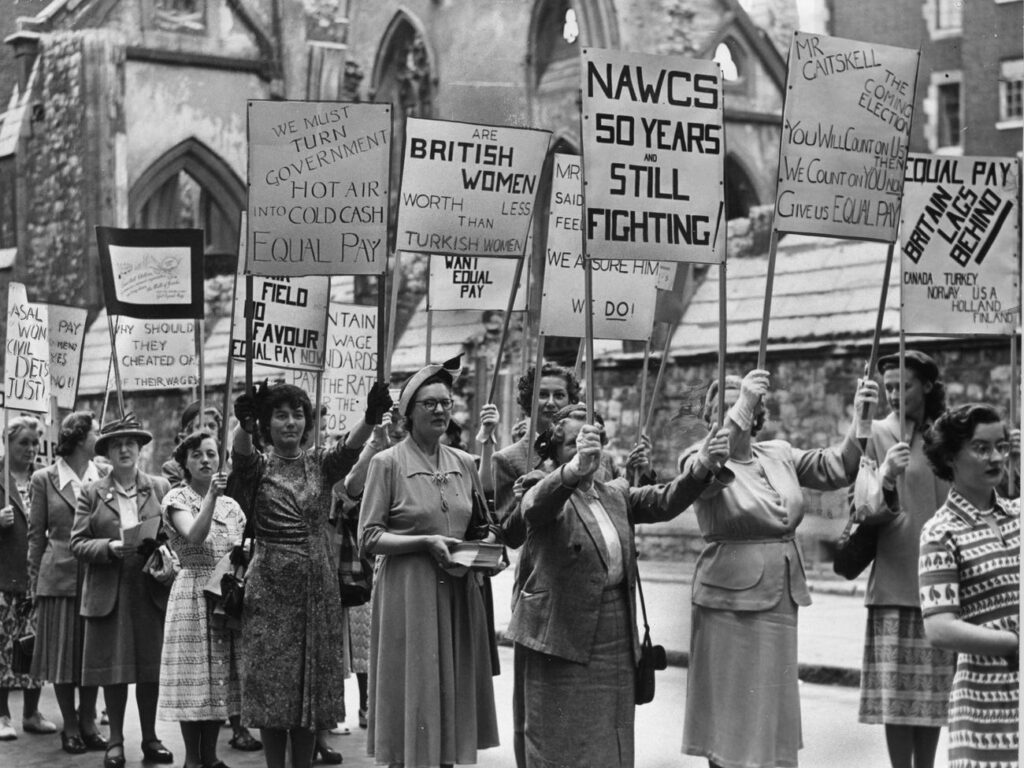176 women were killed in the first 169 days of 2021, in Turkey. Most of these women were killed by their husbands or partners in their own houses. Data from 2020 shows that the situation can get much worse: of the 300 women killed in 2020, 97 were murdered by the men they were married to, 21 were murdered by the men they were married to previously, 18 were murdered by their sons, 17 were murdered by their fathers, 16 were murdered by their relatives, 5 were murdered by their brothers. These terrifying statistics show that despite the Istanbul Convention that offers a legal framework to protect women from violence many women in the country are murdered by their closest relatives. What does then Turkey’s withdrawal from the Convention mean for women’s rights and safety in Turkey?
Nahide Opuz is a woman who was an inspiration for the Istanbul Convention. Between April 1998 and November 2002, she complained 36 times about her ex-husband inflicting violence on her and her family and threatening them. Despite the fact that Nahide Opuz and her mother repeatedly complained and feared that their lives were in danger, the biggest punishment Opuz’s husband received was 3 months imprisonment, which was later converted to a fine. On March 11, 2002, Opuz took her mother and daughter and set out to settle in another city. However, on the way, Opuz’s mother was attacked by her son-in-law and died. Despite all the complaints Opuz made, Turkey failed to protect her and her family. She filed a lawsuit at the European Court of Human Rights against Turkey. The European Court of Human Rights decided that the Turkish government would pay 36,500 Euros to Nahide Opuz as compensation.
After these events, the Istanbul Convention was prepared by the Council of Europe. Its aim is to protect women against all forms of gender-based violence that may end in physical, psychological, sexual, and economic suffering. It also aims to protect those who are exposed to violence by providing safe places to stay, platforms for contact with non-governmental organizations and local services offering assistance, establishing 24/7 accessible telephone support lines, promoting gender equality and raising awareness. The Convention was opened for signature in 2011 and by 2018 signed by 45 countries and the European Union. It entered into force in 34 countries. Turkey was a pioneer in addressing the issues of violence against women: the Istanbul Convention was signed in 2011 and entered into force in 2014.
Between 1920-1935, thanks to Mustafa Kemal Atatürk, the founder of the Republic of Turkey, Turkey took important steps in establishing women’s rights. Turkey switched to a modern education system in 1924, the civil law was enacted in 1926, and in 1934, women were given the right to elect and be elected as parliamentarians. Atatürk was aware of the importance of equality between men and women for the development of the country, and made Turkey a great example to follow by other parts of the worlds. For example, in the 1960s, when British women protested to defend their rights to equal pay with men, a woman carried a placard (image 1) saying “Are British women worth less than Turkish women?” For this reason, it is incredibly sad that Turkey, once so advanced in protecting women’s rights, has become a country that no longer truly values women and where the rate of violence against women increases each year.
Even with the Istanbul Convention in force, 409 women were killed by men in Turkey in 2020 and many more were assaulted and experienced violence. Despite that, discussions about the abolition of the Istanbul Convention began to flare up later that year. The convention was heavily targeted and criticized by conservative groups, such as the Felicity Party (Saadet Partisi) and the ruling Justice and Development Party (AKP), mostly on the grounds that it disrupts traditional Turkish family structure and “leads to irreconcilable differences with the Turkish family institution.” Women’s associations, such as Uçan Süpürge and Mor Çatı, responded with protests insisting that the Convention offers women protection against all kinds of violence, and that people should not interpret it as they see it suits them. In January 2020, the Women and Democracy Association (KADEM), in which Recep Tayyip Erdogan’s daughter is also on the board of directors, declared their support for the Istanbul Convention. However, in February, President Erdogan announced that the Convention would be reviewed due to complaints from the public. Following these events, protests supported by the Government’s main opposition, the Republican People’s Party (CHP), erupted in many parts of the country and across the world (image 2). Despite that, President Erdoğan’s meeting with the Saadet Party’s leader, Oğuzhan Asiltürk, in January 2021 sealed the fate of the Istanbul Convention in Turkey. With the President’s Decree, published in the Official Gazette on 20 March 2021, Turkey’s withdraw from the Convention was confirmed.
There are two major causes of Turkey’s withdrawal from the Istanbul Convention. As it was already mentioned, some conservative and religious communities argue that this convention is harmful to the Turkish family institution. Besides, the conservative groups also claim that the Convention is a form of propaganda in the hands of the LGBTIQ+ communities which use it, along the concept of “gender equality”, to defend their wants that do not comply with the religious beliefs of Turkish society.
In fact, discrimination against the LGBTIQ+ community is growing across Turkey. On 15 July 2016, there was a coup d’état attempted in Turkey against the government of President Erdoğan. A state of emergency was declared which brought about some restrictions on human rights. While the constraints were imposed on the entire society and not only the LGBTIQ+ community, the state of emergency provided a good opportunity to ban pride marches and adopt a harsh tone against them. By repressing the LGBTIQ+ community, the government is trying to create a much more conservative atmosphere in Turkey. And it seems to be successful; conservative and religious segments of the society support restrictions on the LGBTIQ+ rights and thus same-sex relationships remain unrecognized in Turkey. The same groups and supporters of the AKP exerted pressure on the governing party regarding the Istanbul Convention. The fact that the announcement about the decision to withdraw from the Istanbul Convention was made by the Islamist Felicity Party – Saadet, shows the AKP’s attempt to form alliances and appeal to the Saadet supporters in the next election.
Another reason for the termination of this convention is that it is considered a challenge to traditional Turkish family values. Some people believe that relying on women’s testimonies in cases of violence against women can victimize innocent men and can contribute to evicition orders that are given to them. They also question the need for the Istanbul Convention and claim that the Turkish Criminal Law does offer enough protection. However, there are many problems that often arise regarding domestic violence and the Turkish Criminal Law. According to the Article 86 of the Turkish Criminal Law, any person who intentionally causes another person physical pain or who impairs a person’s health, or ability to perceive, shall be sentenced to a penalty of imprisonment for a term of one to three years. In the Article 86, paragraph 3, it is provided that no complaint will be sought if this offense is committed against the wife. However, in actual life, the commission of this crime against the wife is acted as if it depends on the complaint. For instance, when the crime is referred to the police, the police acts as if this crime is linked to the complaint, then reconciles and sends the parties home. Such situations constitute a major obstacle to ending domestic violence. Unfortunately, we see that women who were sent back to their homes in this way were later injured much more seriously or even killed.
Undoubtedly, domestic violence has become a major problem in Turkey and must be resolved urgently. It must be understood that the Istanbul Convention does not make men a victim; a statement made by a woman is not a verdict, but a reason for investigation. The Convention does not separate families; the safety of the household is a priority and men who use violence and threaten that safety should be removed from home instantly. The claims that the Convention challenges Turkish family structure and threatens Turkish family values, or promotes homosexuality are false and dangerous – without the Istanbul Convention, gender-based violence will continue.
The termination of the Istanbul Convention caused a lot of controversy in the country. First of all, the legal validity of this termination is controversial. The Istanbul Bar Association has published a statement and stated that this termination is invalid. According to the Article 90 of the Constitution, this convention has the force of law. Since it is an international convention, it should be terminated by a vote in the parliament. For this reason, women’s right advocates claim that the Convention cannot be terminated by a Presidential decree. Even though Turkey had not implemented all the regulations of the said convention over the last 10 years, the Convention still provided some degree of protection. Thus, women do not agree with the termination of the Convention, and will continue to raise public awareness and stand up for their rights.
Turkey officially withdrew from the Convention on 1 July 2021. It was the first country to sign the Istanbul Convention, but now claims that it does not need it to protect women, as it has the power to protect women’s rights with its law, domestic legislation and constitutional regulations. AKP stated that they took the criticisms about the abolition of the Istanbul Convention seriously and began preparing the Ankara Convention instead. They emphasized that the new convention would include internal regulations to be made for the protection of women. Yet, as a Turkish woman, I do not feel reassured and safe, and I am not the only one. The opposition adamantly opposed the abolition of the Istanbul Convention. Kemal Kılıçdaroğlu, the leader of CHP, announced: “I promise that I will defend your rights everywhere, on every platform.” The HDP Women’s Council expressed their view that by making the decision to withdraw from the Convention, the AKP has once again reiterated its deeply ingrained misogynistic attitudes. There was also a lot of backlash against this dissolution from other opposition parties as well as public figures, including celebrities. In addition, the foreign ministries of many countries announced their disappointment with the decision. Marija Pejcinovic Buric, Secretary General of the Council of Europe, considered the termination of the Convention “devastating news”. Nacho Sanchez Amor, the European Parliament’s Turkey rapporteur, commented on his Twitter account: “This is the real face of the current Turkish government: completely ignoring the rule of law and a complete return from human rights.”
I believe that the decision to withdraw from the Istanbul Convention, made despite the murder of 409 women, has led us to a life full of fear. Turkish women want justice and protection. And because these are not provided, gender-based murders continue to increase day by day. Sometimes women are murdered by people they don’t know on the street like Ceren Özdemir, sometimes by their husbands like Selda Taş, sometimes by their ex-lovers like Aylin Sözer, sometimes by their lovers like Pınar Gültekin, sometimes by their family members like Vesile Dönmez and sometimes women are getting murdered by their ex-husbands in front of their children like Emine Bulut. Turkish women don’t want to die. They want to have equal rights in all areas of life, earn as much as men do, walk the streets without fear, live peacefully in their homes and society without being judged because of their gender, race, color, language, religion, political opinion, marital status, immigrant or refugee status and sexual orientation.
Moreover, the demonization of the LGBTIQ+ community, is unacceptable in a democratic country, where everyone is free to love whomever they want. This country should protect us from murderer, from hatred towards others and not from love that people feel for each other. No life is more precious than another, and justice is for everyone. In 2016, Hande Kader, a transgender and LGBTIQ+ rights advocate, was murdered. She was just 26 years old and fell victim to transphobia. We need to prevent these hate murders. We need to provide justice for these people. However, by discriminating against these people, demonizing them, and abolishing the Istanbul Convention, we are only paving the way for more deaths.
It is horrible to wake up every day to the news that a woman was killed the previous night. We must continue to fight for all women who experience any form of violence and in the memory of those who were murdered. Put yourself in Turkish women’s shoes and imagine that you have to consider carefully where you go, which bus you take, which road you walk and who you meet to make sure you won’t get hurt. We all must fight for equality and safety until we reach a stage where no woman anywhere in the world has to think about these everyday issues to protect herself. Put yourself in Turkish women’s shoes and imagine that the Istanbul Convention keeps you alive!

Source: https://i.insider.com/5c756f79eb3ce808a46a5145?width=1300&format=jpeg&auto=webp

Source: https://cdn.cnn.com/cnnnext/dam/assets/200805184958-01-turkey-gender-protests-istanbul-convention-intl-exlarge-169.jpg
Bibliography:
Altınay Ayşe Gül- Arat Yeşim, Türkiye’de Kadına Yönelik Şiddet, 2007.
Ayata Gökçeçiçek – Eryılmaz Dilek Sevinç – Emrah Oder Bertil, KADIN HAKLARI Uluslararası Hukuk ve Uygulama, ‹stanbul Bilgi Üniversitesi Yay›nlar› 305 , İstanbul, Temmuz 2010.
BAKIRCI Kadriye, İstanbul Sözleşmesi, Ankara Barosu Dergisi, 2015/ 4.
Council of Europe, Council of Europe Treaty Series – No. 210, Council of Europe Convention on preventing and combating violence against women and domestic violence, Istanbul, 11.V.2011.
Council of Europe, Chart of signatures and ratifications of Treaty 210.
Council of Europe, The Four Pillars of the Istanbul Convention, Council of Europe Convention on preventing and combating violence against women and domestic violence.
Çalı Başak , Withdrawal from the Istanbul Convention by Turkey: A Testing Problem for the Council of Europe, 2021.
Ergüneş Duran Ezgi, İSTANBUL SÖZLEŞMESİ’NİN İÇ HUKUK BAKIMINDAN İNCELENMESİ VE SÖZLEŞME’NİN UYGULANMASINDA KADININ STATÜSÜ GENEL MÜDÜRLÜĞÜNÜN ROLÜ, April 2014.
Parlak Börü Şafak, INTERNATIONAL AGREEMENTS REGARDING PROTECTION OF WOMEN AND THE STATUS OF TURKEY, TBB Dergisi 2017.
Sokullu-Akıncı Füsun, Increase in the Numbers of Women Victimization and Access to Justice For the Women of Turkey, Annales XLIII, N. 60, 161-183, 2011.
Tekçe, Samet Talha, AVRUPA İNSAN HAKLARI SÖZLEŞMESİ VE İSTANBUL SÖZLEŞMESİ’NDE KADINA KARŞI ŞİDDETİ ÖNLEME MEKANİZMALARI VE TÜRKİYE, Istanbul, 2019.
Uyan Semerci Pınar – Erdoğan Emre, Perceptions on the Istanbul Convention: Violence Against Women Consensus in Prevalence, Polarization in Responsibility, 01.02.2021.


